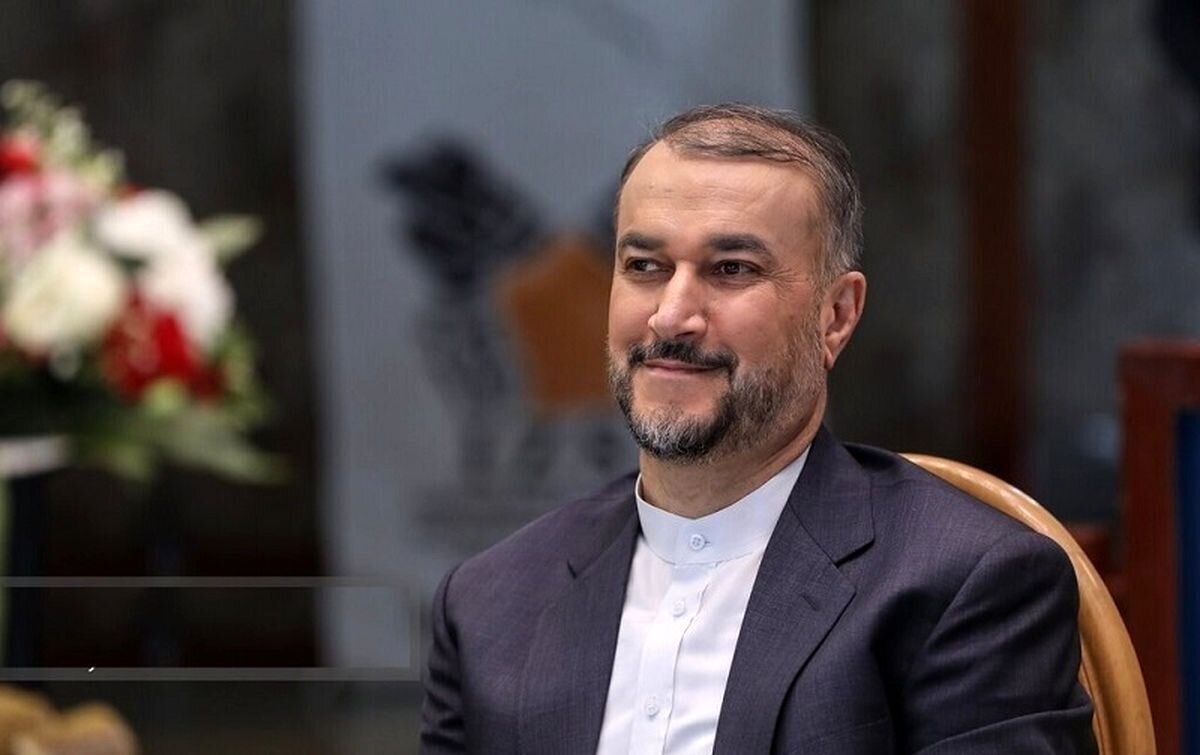Participation in SCO, BRICS shows that isolating Iran has failed: FM

TEHRAN- Iran’s Foreign Minister Hossein Amir Abdollahian says the Islamic Republic’s active participation in the Shanghai Cooperation Organization (SCO) and the BRICS group of nations demonstrates that the policy of isolating Iran has failed.
Amir Abdollahian made the remarks in an interview with Press TV after holding talks with his counterparts from Brazil, India, Russia, Saudi Arabia, the United Arab Emirates, South Africa, the Comoros, and Gabon on the sidelines of his two-day visit to Cape Town, South Africa, where he attended a foreign ministerial meeting of BRICS.
BRICS includes five economically emerging countries of Brazil, Russia, India, China and South Africa. Iran is among countries that seeks to join the economic bloc.
“Iran’s active presence in the Shanghai Cooperation Organization, in the Eurasian Economic Union, and recently in BRICS, shows the global policy of isolating Iran has failed,” Amir Abdollahian stressed.
He went on to say, “Countries and alliances act based on their own interests. Our clear and outright message is that the Islamic Republic of Iran cannot be isolated and sidelined.”
The top diplomat emphasized the geopolitical and strategic importance of Iran and declared that the Islamic Republic is adamantly opposed to unilateralism. “We vehemently reject unilateralism while still using all chances within the context of multilateralism.”
He added, “Iran has a key standing in the region in terms of geopolitics, geo-economics, and geo-strategy.”
The senior diplomat also said that “Iran lies on the major transit route linking the North and the South, as well as the East and the West. We enjoy a whole range of advantages and facilities, and the other parties benefit from this interaction, too.”
“BRICS insists on strengthening multilateralism”
Amir Abdollahian said BRICS is a group that aims to strengthen multilateralism.
More than three billion people live in the five major BRICS nations, which occupy about one-fourth of the planet’s area, he explained.
“That shows how influential the BRICS countries are when it comes to focusing on multilateralism, and that is why the Islamic Republic of Iran attaches special significance to BRICS,” he highlighted.
Amir Abdollahian says President Ebrahim Raisi’s administration has been striving to tap into the potential of regional, economic, political, and security alliances to better safeguard Iran’s national interests within the framework of multilateralism since assuming office.
“We began following up on Iran’s membership in BRICS last year. The five key member states of BRICS, namely Russia, China, Brazil, India and South Africa, accepted Iran’s basic proposal that new members join BRICS,” he added.
Abdollahian also noted, “We will receive the rules and protocol proposed by the BRICS members and, in response, implement the appropriate steps within that framework, according to the schedule. However, based on the discussions I had with the foreign ministers of the important member nations, Iran has received significant consideration as a prospective new member.”
Amir Abdollahian praised Iran’s possible BRICS membership, saying, “We will be able to utilize the potentialities of BRICS in order to promote multilateralism in order to increase trade with member states and enhance economic cooperation to benefit the Iranian nation.”
‘Iran-Saudi ties in the interest of the region’
On the sidelines of the BRICS summit in Cape Town, the top Iranian diplomat held talks with his Saudi counterpart, Prince Faisal bin Farhan Al Saud.
Amir Abdollahian said the issue of relations between Tehran and Riyadh and the return of relations to a normal state was of interest to the region.
“The Saudi foreign minister Mr. Faisal bin Farhan and I reached an agreement that the embassies and consulates of the two countries be reopened in Riyadh, Tehran, Jeddah and Mashhad next week,” Amir Abdollahian said, adding, “Our representative’s office at the OIC – the Organization of Islamic Cooperation – will also be reopened in Jeddah.”
Referring to the Hajj season, he underscored, “Our pilgrims have been travelling to Saudi Arabia since May 24. It’s important for us that our diplomatic and consular agencies are established and carry out their activities to facilitate the affairs related to the Iranian Hajj and Pilgrimage Organization.”
“New kinds of collaboration popping up in region”
The senior diplomat highlighted that new opportunities have arisen for cooperation in the region in a meeting with his Saudi counterpart.
“We believe the region is changing,” the top diplomat said.
He went on to say, “In my opinion, the development of economic, commercial, cultural and tourism cooperation at the regional level can guarantee regional security.”
Give the function the Persian Gulf Cooperation Council (GCC), Amir Abdollahian said, “The existing security models to achieve collective cooperation in the region appear to be outdated.”
“New world order is emerging”
Amir Abdollahian also said a new world order is emerging which is at odds with U.S. haughtiness and hegemony, prancing from unilateralism to multilateralism.
“The truth is that a new world order is taking shape. It involves moving away from the unipolar system and unilateralism and the focus of the main global actors is now on the issue of multilateralism and multi-polarity,” the foreign minister stressed.
Additionally, he said, “They want the current order which is based on U.S. hegemony to be at the center of world attention, but as the concepts in international politics and international relations have changed in recent years, the realities of the international stage have also altered.”
Abdollahian said that international bodies like the SCO and BRICS can have positive effects on the world order.
“In addition to strengthening our bilateral relations with various countries, we will take advantage of existing regional and international mechanisms in order to maximize our national interests,” he pointed out.
Leave a Comment